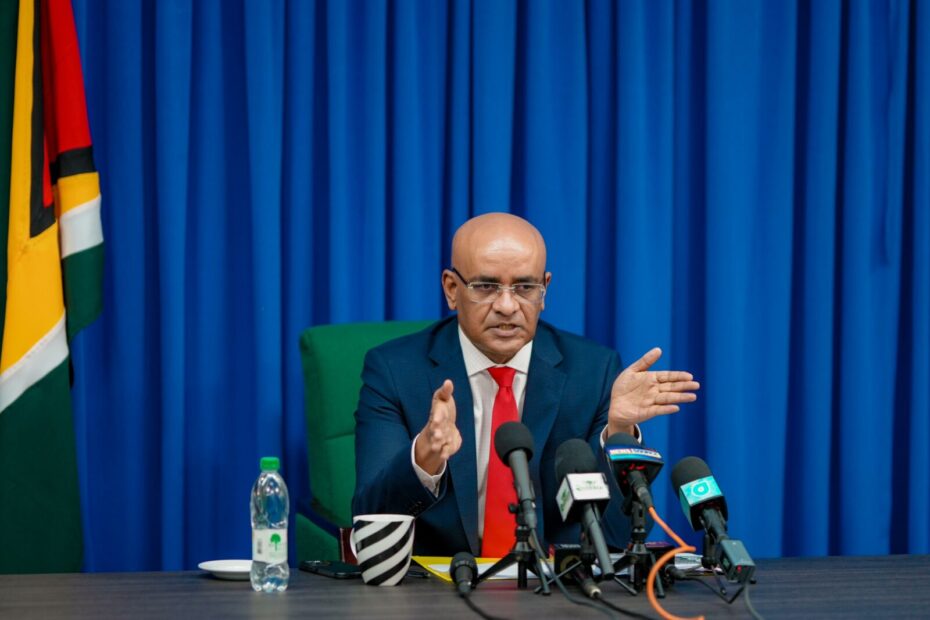The government plans to table a National Oil Incident, Emergency Response, and Financial Responsibility Bill of 2024 soon in the National Assembly to strengthen environmental protection and ensure greater liability coverage within the oil and gas sector.
Vice President, Dr Bharrat Jagdeo said that the first draft of the bill has been completed, and will be sent to different state departments, such as the Environmental Protection Agency (EPA), the Maritime Administration Association (MARAD), the Attorney General’s Chambers, and the Civil Defence Commission (CDC) for its first round of discussions.
“We plan to table this bill, and hopefully have it passed before the recess which is in August,” the VP said at his press conference at the Office of the President on Thursday.
He said the bill would significantly strengthen the government’s capacity to ensure full liability coverage and for oil spill preparation, planning, and response.
“So, this will greatly enhance our capability to not just hold those responsible for any potential polluting activity, not just the oil and gas producers or the oil companies, but shipping companies and others…to hold them fully liable, but also ensure that people, if their activities are affected, they will be fully compensated for any loss that they incur because of a potential oil spill,” the vice president explained.
Dr Jagdeo spoke of several measures already in place to address any potential oil spill, and better manage the industry.
He underscored that ExxonMobil and its coventurers operating in the Stabroek Block have agreed to a US$2 billion parent company guarantee for oil spills. They have also agreed to a US$600 million insurance package.
“Further we have argued that the asset base of the company here, the local company, could be used to address the liabilities arising out of any potential oil spill,” Dr Jagdeo noted.
He also pointed to the tenets of the Environmental Protection Act, which emphasises ‘strict liability’.
According to the Act, this means that the permit holder is fully responsible and fully liable for any pollution that their activities and this does not have to be proven.
“So, the EPA Act already deals with full liability outside of the insurance that I spoke of, the parent guarantee and recourse to the substantial asset base but the act mandates full liability on behalf of the permit holder. In this case, the permit holder is the company producing here,” VP Jagdeo added.
Even though this is a notable reassurance, Dr Jagdeo admitted that it is not enough, and this necessitated more comprehensive legislation that provides greater scope in liability.
“That is why we have indicated that we are working on [the] new bill,” he stated.
He said the government has also mandated that ExxonMobil strengthen its local capacity and response to an instance of an oil spill.
Under the licences issued by this government, the company has been required to develop an in-house capping stack to protect against a potential oil spill.
A capping stack acts as the last line of defence, a vital piece of equipment that can seal off a well and stop oil flow in case of system failure.
“That was not available in many other parts of the world when they had environmental disasters,” VP Jagdeo pointed out.
He added that the government’s measures to ensure adequate protection in the case of an oil spill surpass those of many other oil-producing countries.
“We are not just ensuring that that we have financial means to do so, to address the problem. But we also have the law backing us, so that should this any such an incident was to happen, then we would be we’d be ready to address it,” VP Jagdeo assured.
At a previous press conference, Dr Jagdeo noted that the administration is actively studying similar legislation of other countries including the United States (US), to incorporate relevant positions.
